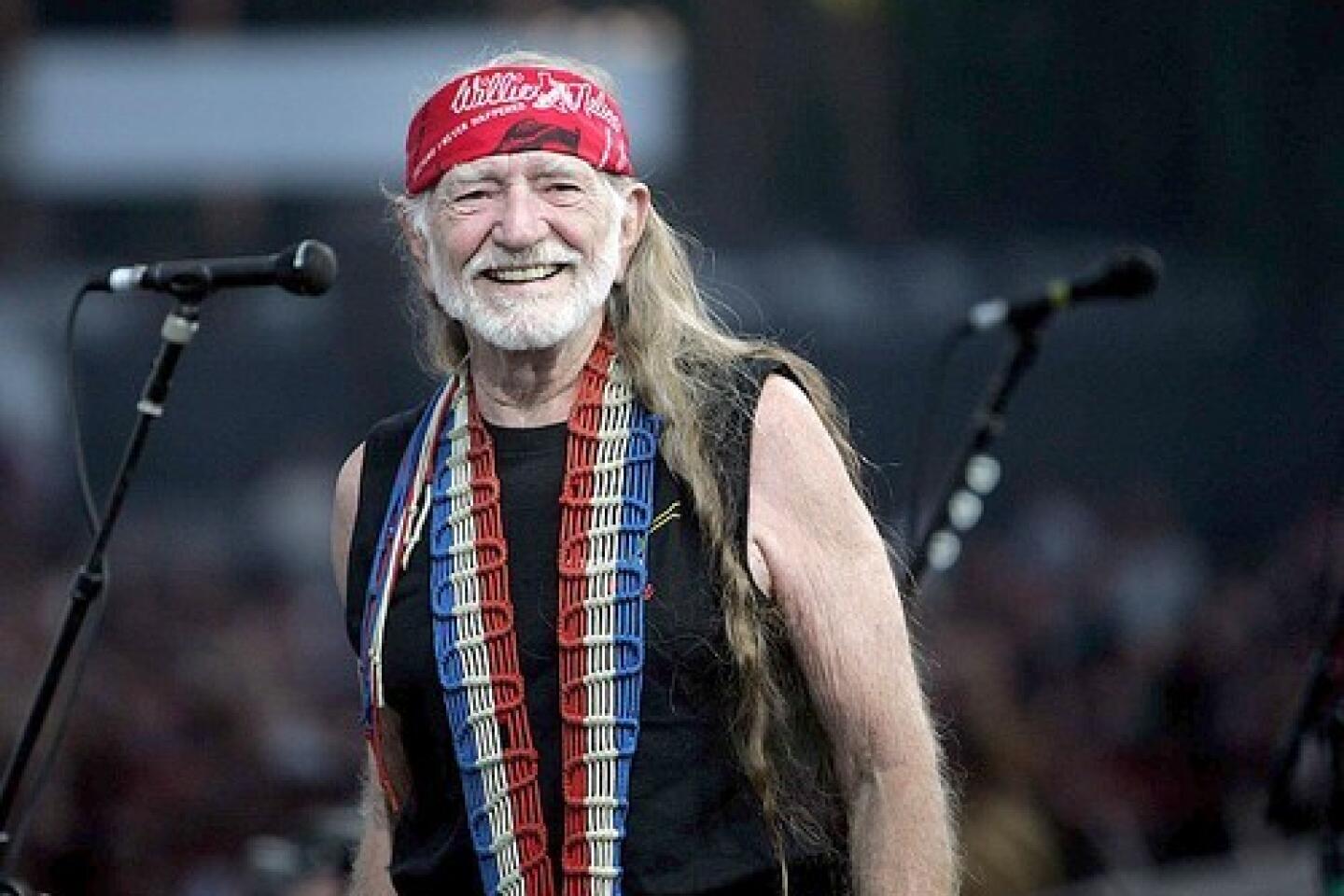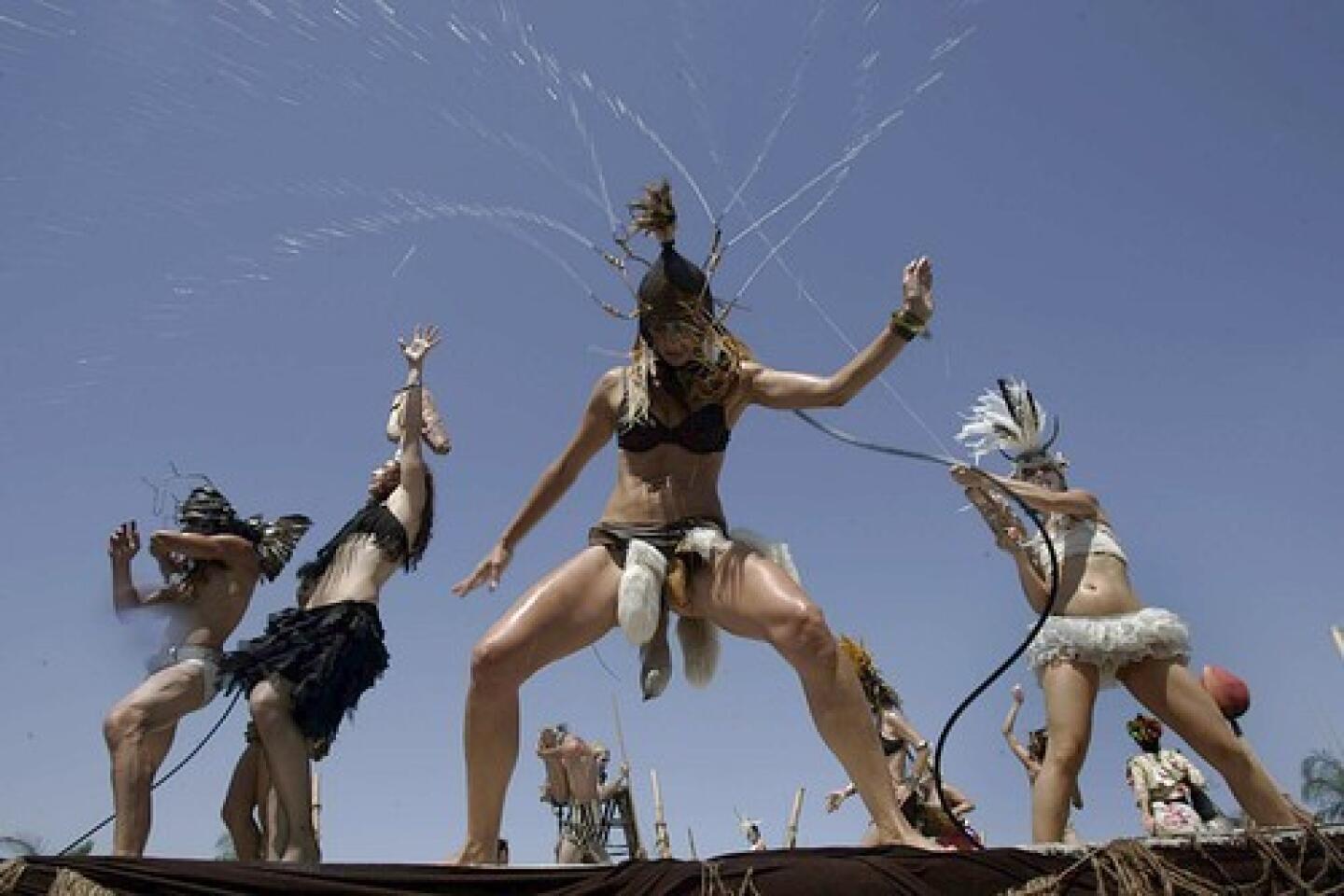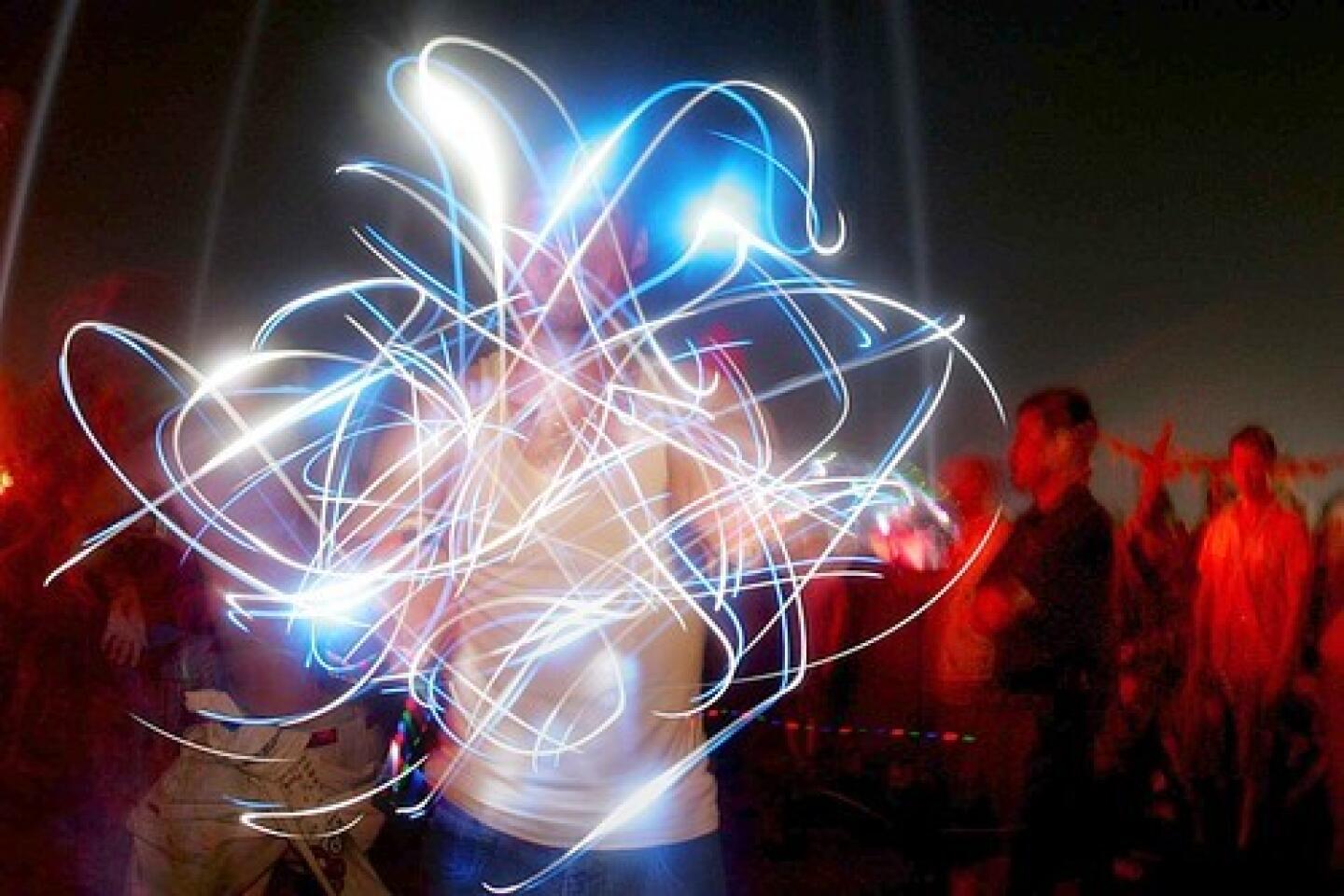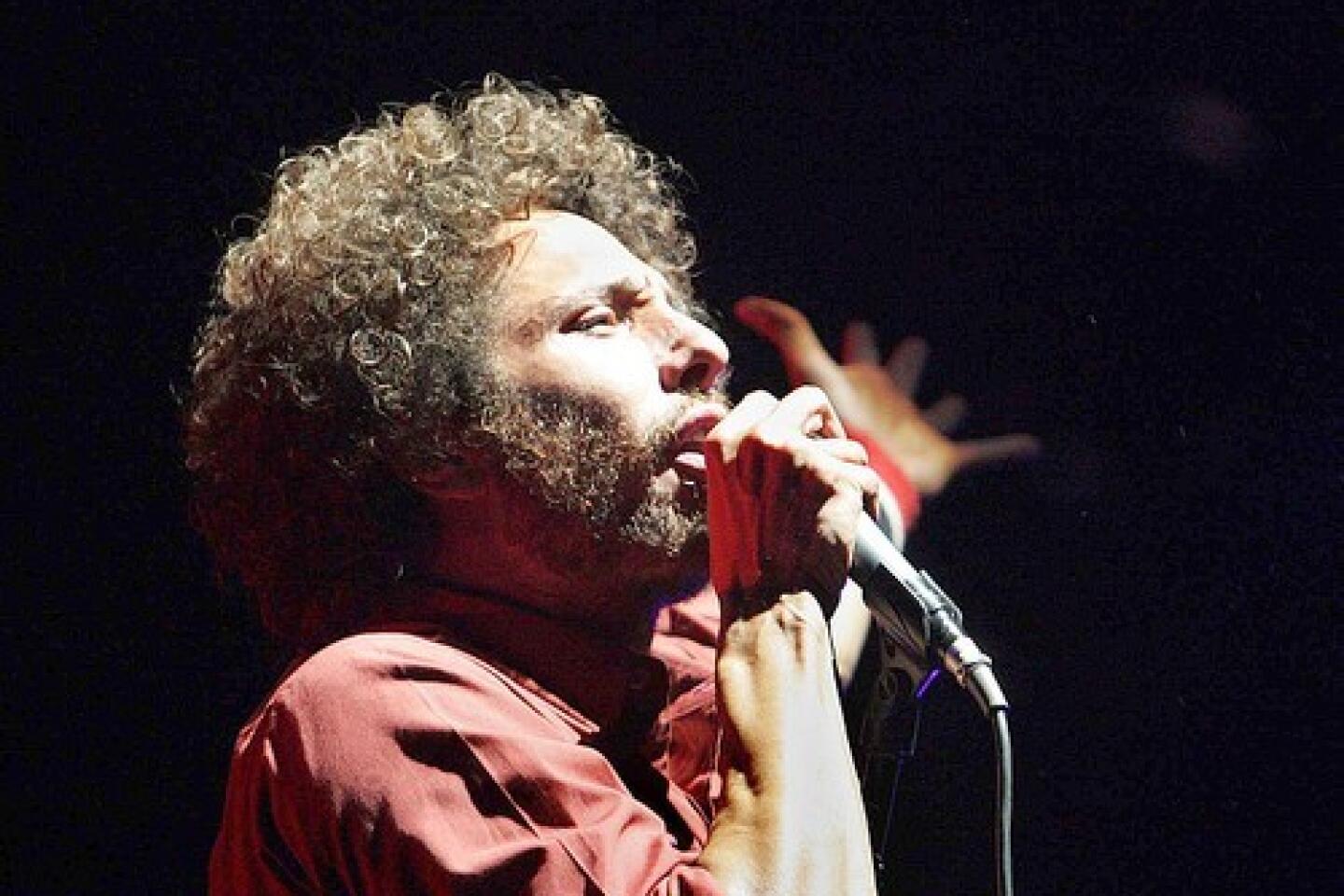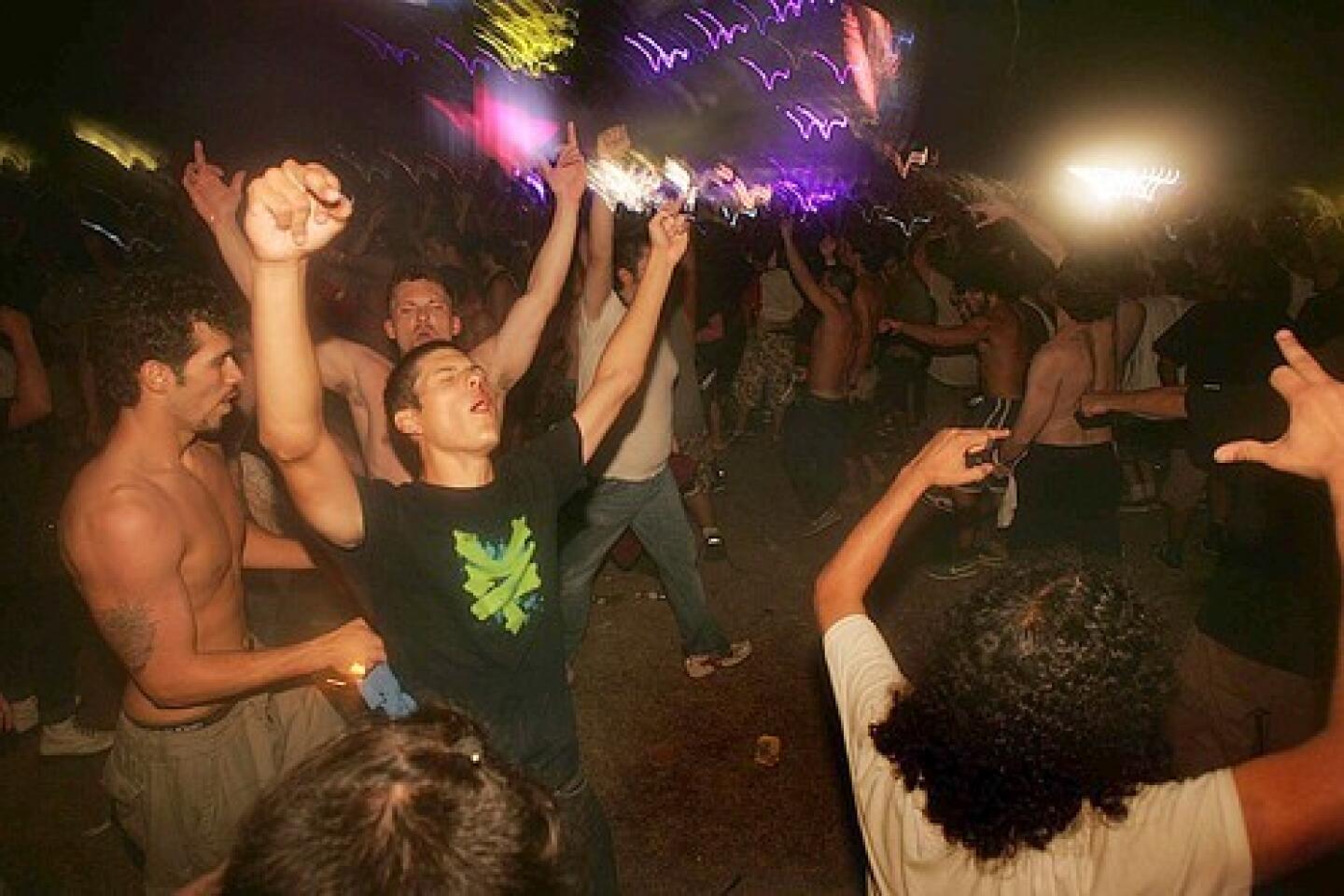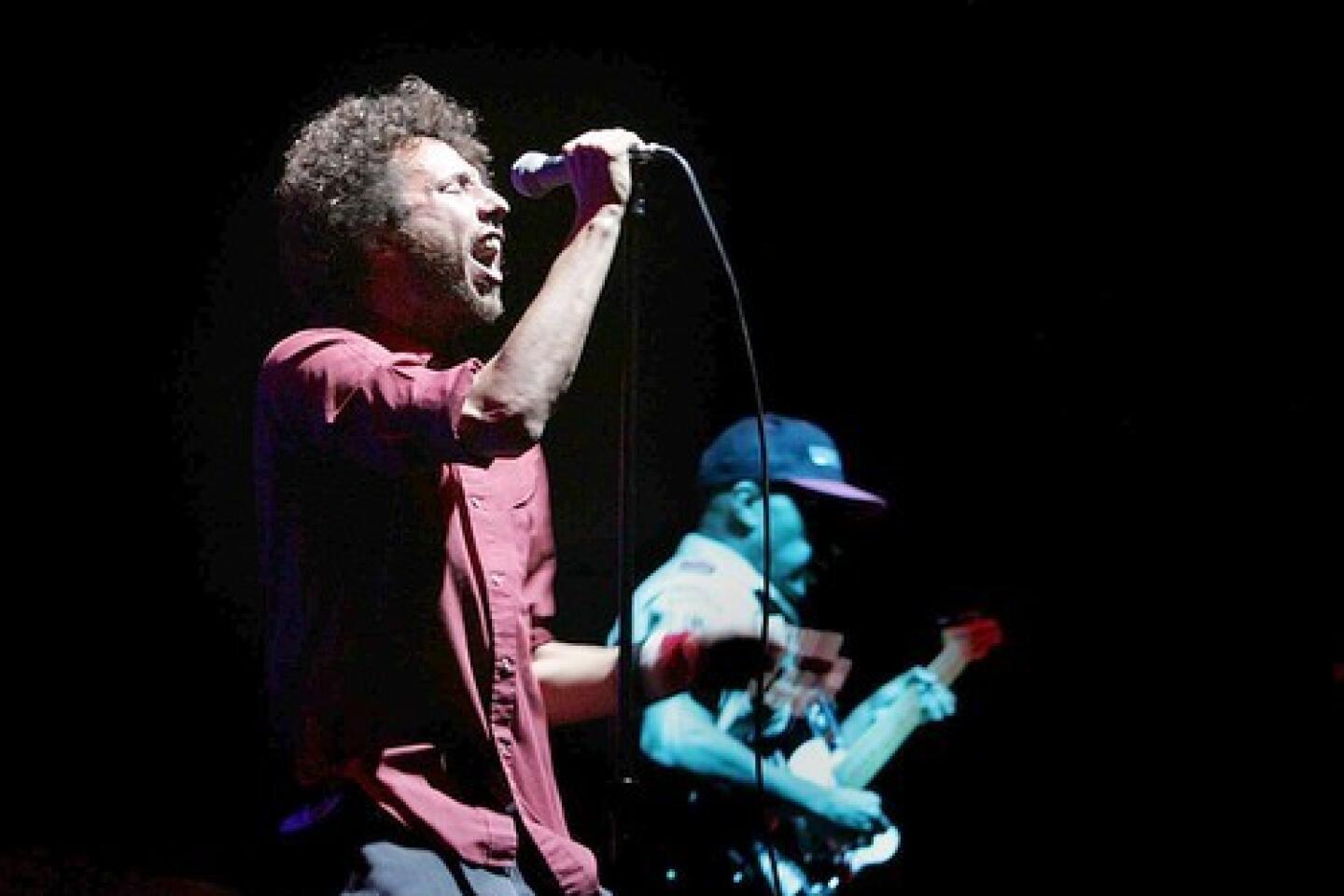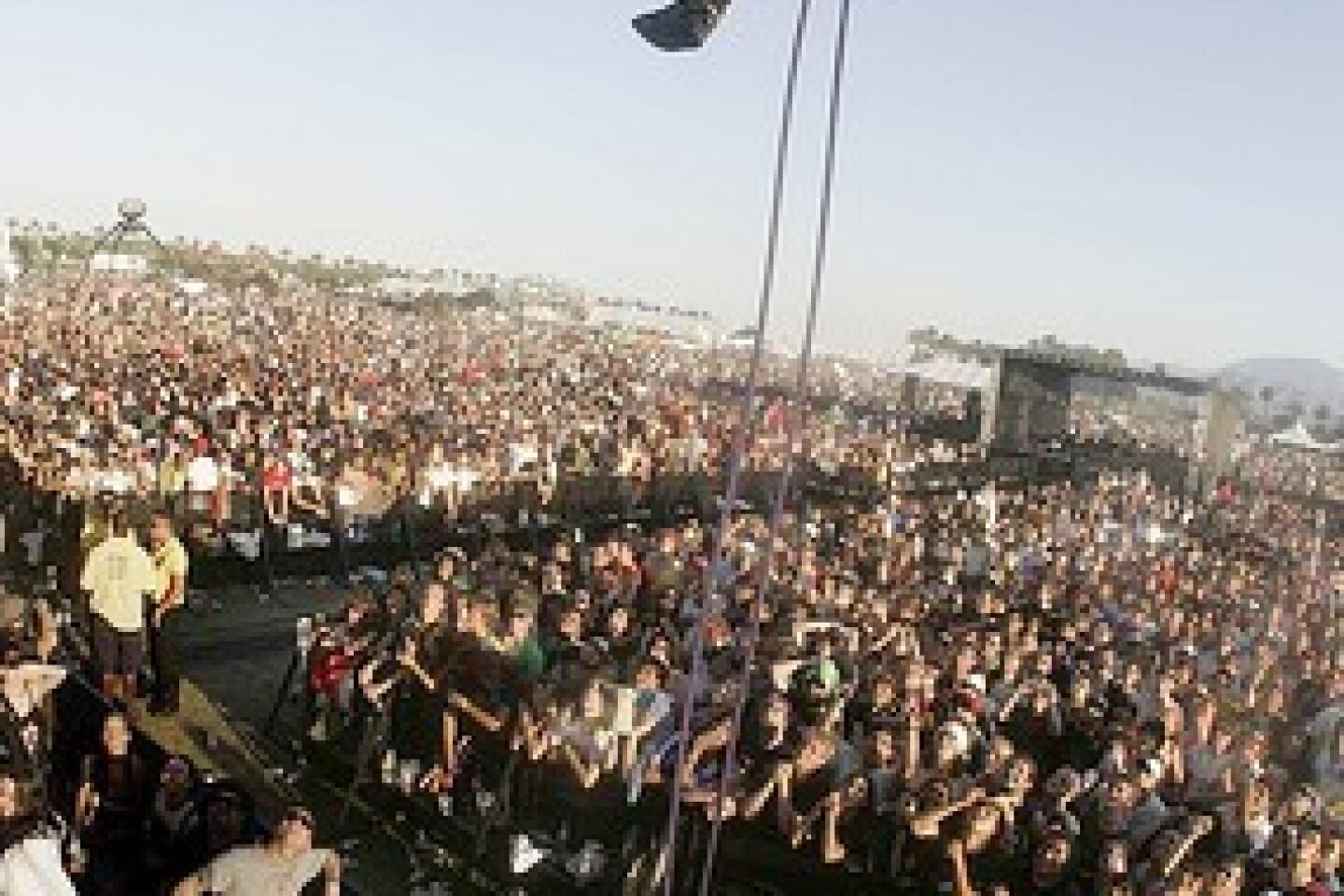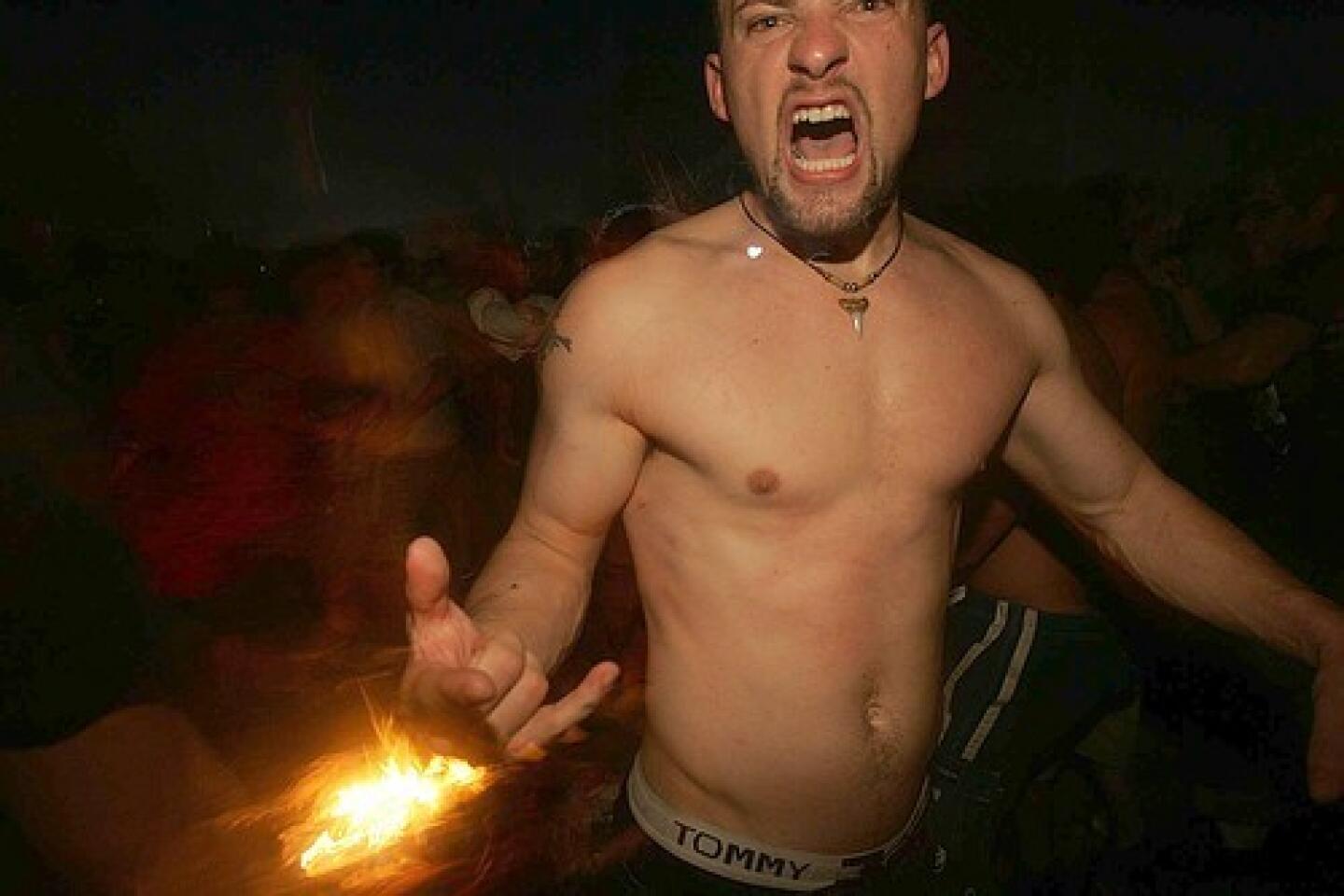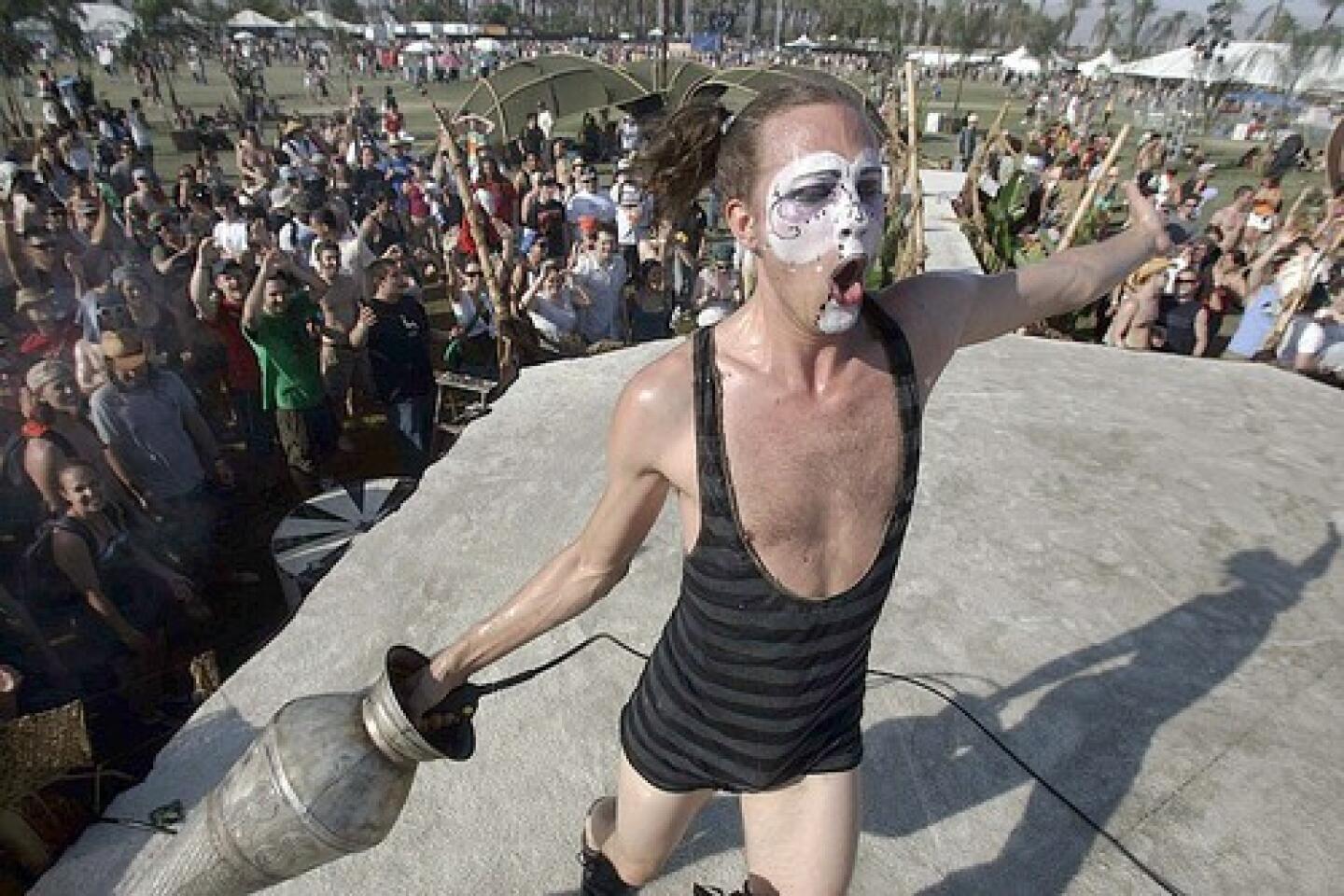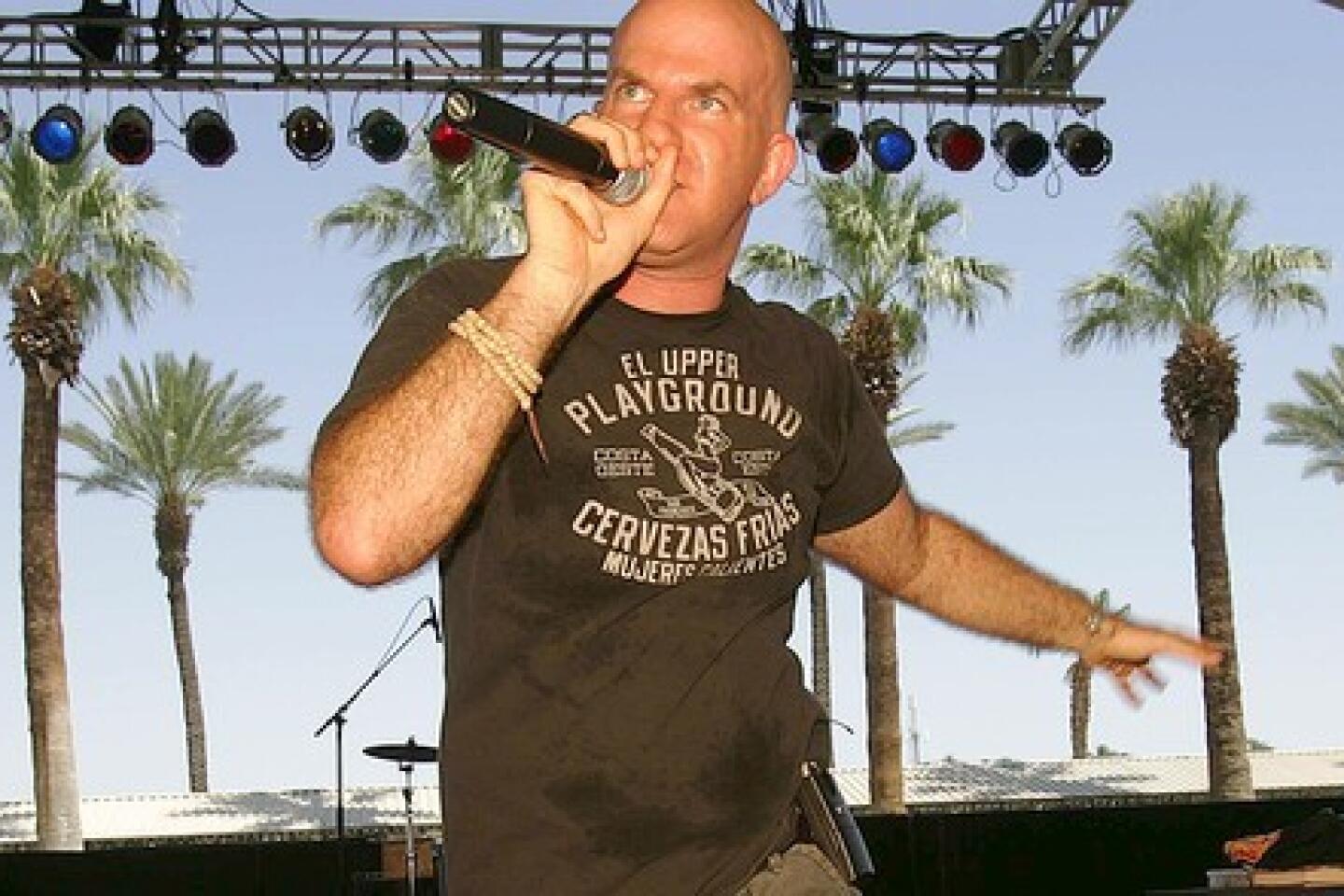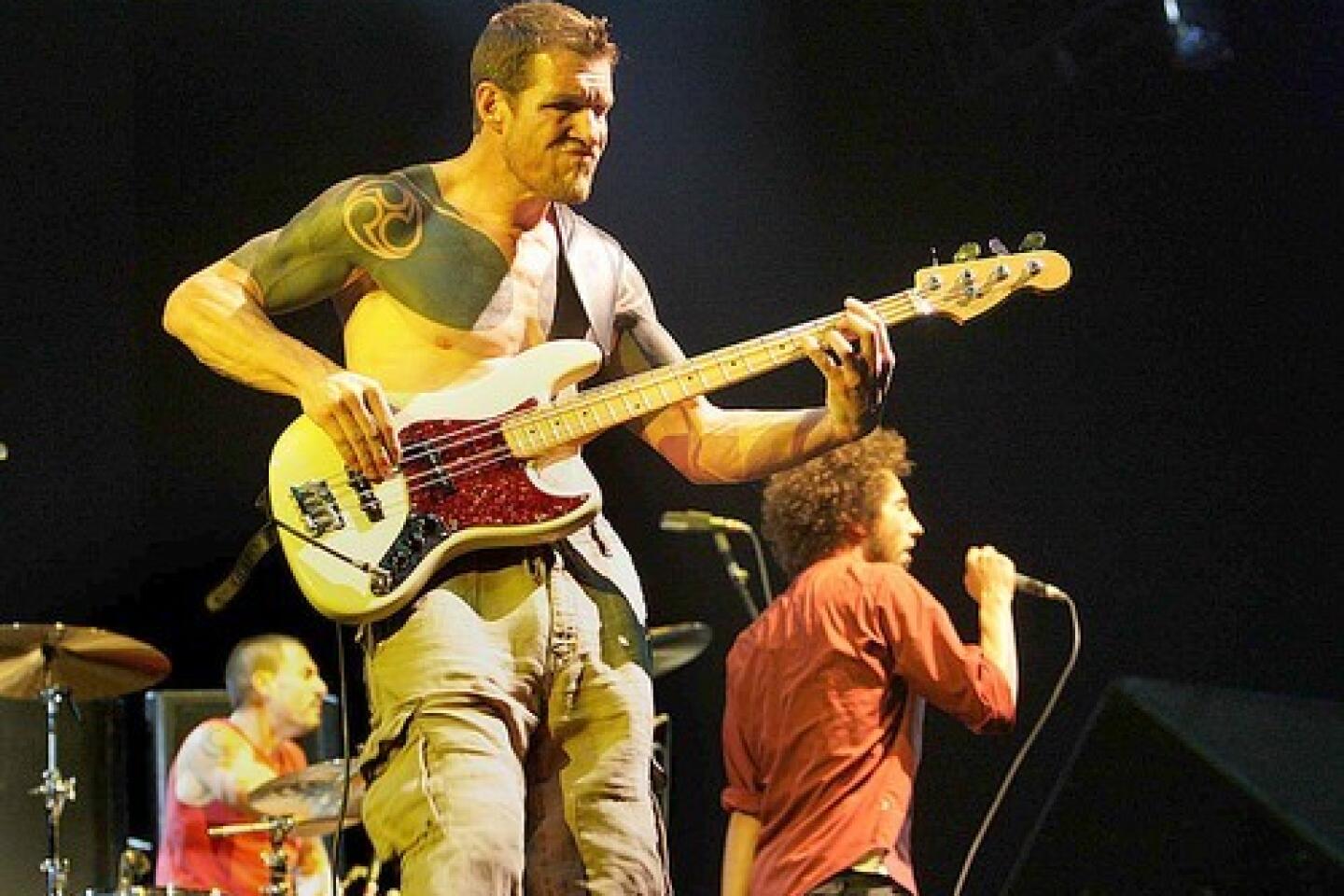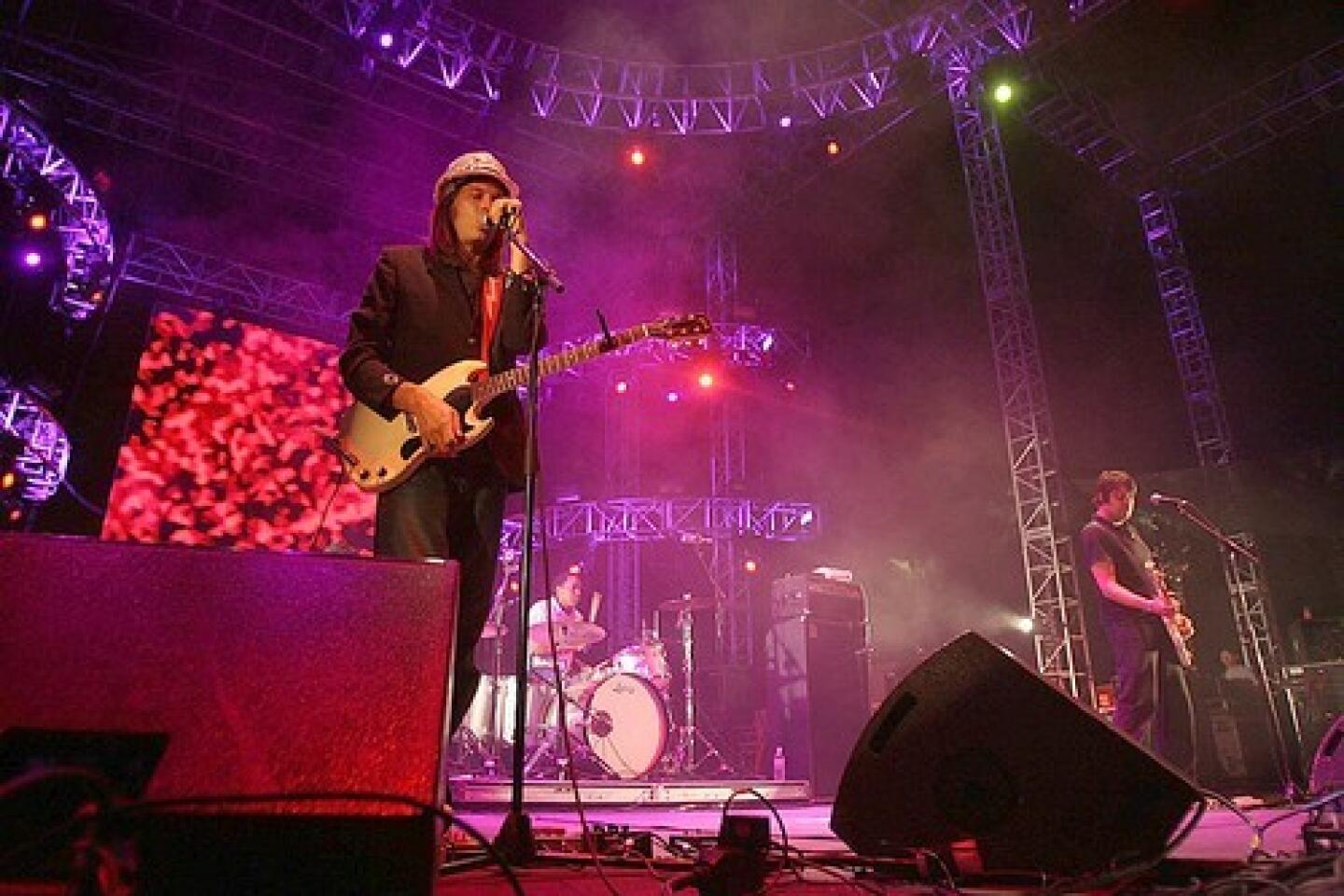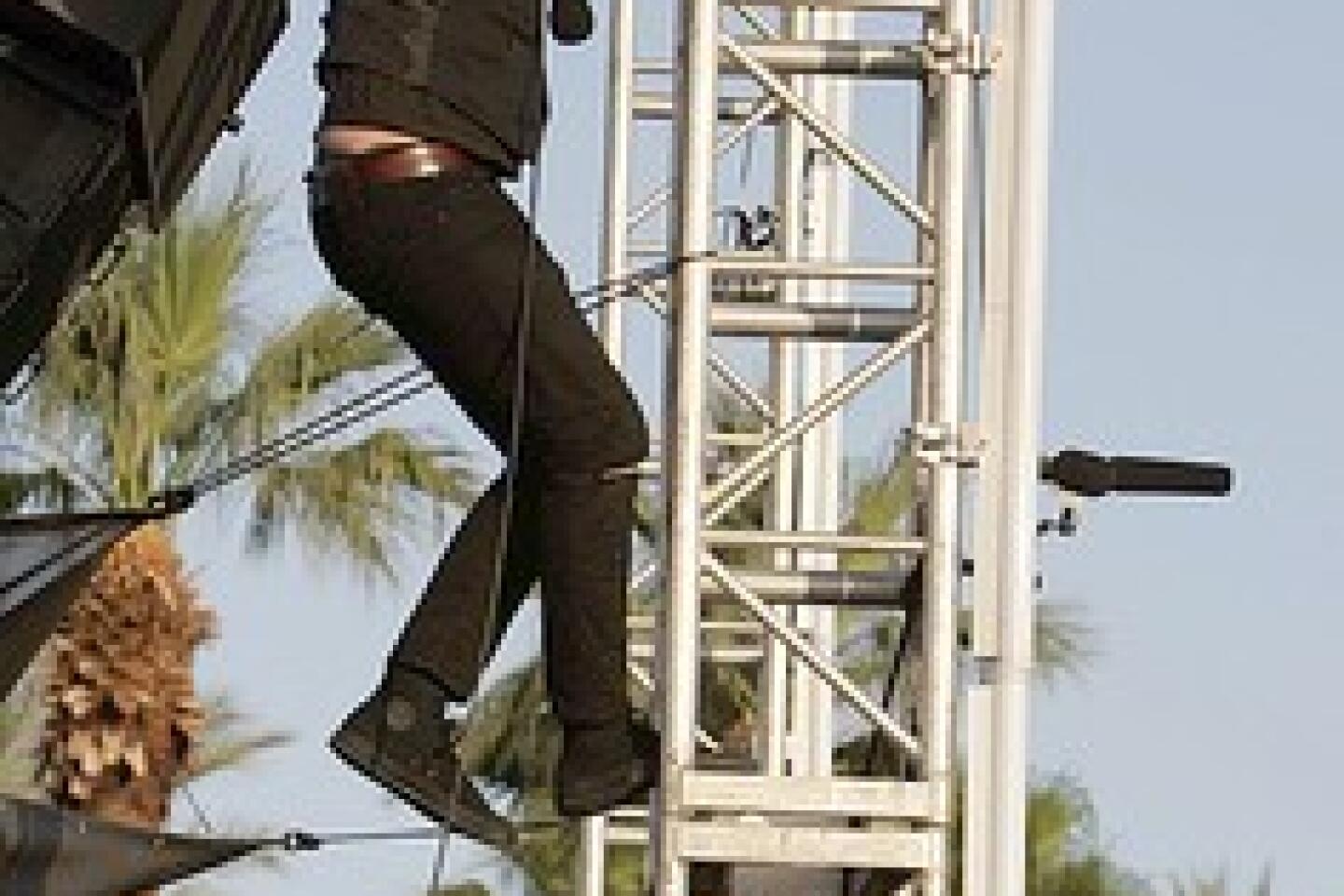Rage saves the best for last
- Share via
Zack de la Rocha crouched in front of Brad Wilk’s drum kit and surveyed the nearly 60,000 people at his feet. All around him crested a noise that had been bottled up for seven years. The crowd clamored at the sound of Tom Morello’s guitar flashing over the stormy rhythms of Wilk and bassist Tim Commerford. It was Sunday in the desert, and Rage Against the Machine was back, its kinetic energy washing over the field as the Coachella Valley Music & Arts Festival came to a rabble-rousing end.
De la Rocha intoned the words of “Killing in the Name,” a castigation of white supremacy and militarism from the Los Angeles-based band’s 1992 debut. “Now you do what they told ya,” he sneered as his mates pummeled out a heavy chord progression. Then he locked eyes with the masses and led them in a chant about turning the tide.
“I won’t do what you tell me!” thousands at Indio’s Empire Polo Club yelled. Rage had accomplished its goal. Its fans were on fire again.
The Rage reunion may be the most anticipated rock event this year, but for several songs, it promised to be anticlimactic. Part of the problem was sound. Commerford’s bass could barely be heard at times, leaving Morello to work his trademark effects magic over a weak rhythmic bed. Wilk’s drums gained prominence when he focused on the kick pedal, but his low notes also got lost. The sound system was simply set too low at first; pulsing sounds from a nearby dance-music dome even bled in. After so much buildup, Rage needed to overwhelm. Instead, its delivery seemed almost polite.
That changed once the volume went up and the three instrumentalists locked into their hard, loose groove. At that point De la Rocha decided this was more than a casual appearance. He shook off his ennui and started to project the manic conviction that makes his revolutionary politics appealing to fans beyond the radical left.
De la Rocha’s lyrics are as insurrectionary as bestselling rock gets — Sunday, he delivered a short sermon insisting that toppling the Bush administration wouldn’t accomplish enough; only complete social breakdown and restructuring could mend society’s ills. His words communicate beyond the fringe by marrying the swagger of hip-hop with the romanticism of heavy metal. His vocal style, suggestive of the prophet Jeremiah reborn as an armed and dangerous street baler, makes sloganeering feel intimate. De la Rocha has struggled to find his voice since parting ways with Rage, but his charisma was in force Sunday once he relaxed into his great old material.
Linked to Morello’s Bomb Squad-inspired atmospheric guitar and that big-footprint rhythm section, De la Rocha’s pronouncements become pop, appealing beyond the constituency most likely to accept them. This is the power of Rage. Like the best political art, its music stimulates an emotional connection before forging an ideological once. Morello has suggested in interviews that Rage’s departure from the scene, coinciding with the rise of the second Bush administration, was bad for the country. That’s pretty arrogant, but it is true that few musical acts since have planted the seed of dissent so effectively.
The band has one more festival appearance scheduled — the hip-hop-oriented Rock the Bells, which comes to San Bernardino in August. Whether its brief return will stimulate real change is hard to guess. At the very least, it will get more crowds questioning.
Rage wasn’t the only rebel act to play Coachella’s closing day. The Coup, the Oakland-based hip-hop crew led by the acerbically brilliant MC Boots Riley, delivered its ribald, acutely observed critiques over a powerful funk-rock groove. (Integral member DJ Pam the Funkstress was inexplicably absent, making the Coup more closely resemble Rage, but with more jokes and sex.) The Mexican duo Rodrigo y Gabriela thrilled a capacity crowd with slicing, rhythmically tricky heavy rock played on acoustic guitar.
Playing just before Rage, the French-Spanish producer and songwriter Manu Chao got that massive field dancing wildly with a rapid-fire blend of reggae, post-punk, Afropop and more, breaking the rules of genre left and right. And while its exquisite rhythmic excursions don’t really fit the definition of political pop, the Congolese ensemble Konono No. 1 modernizes traditional music by using both likembe (thumb pianos) and various instruments crafted from junkyard scraps. Its Rube Goldberg setup produced an exquisite sound that reminded the eagerly insurgent Coachella audience that in music, liberation comes first in the playing, and only later in the pronouncements.
ann.powers@latimes.com
More to Read
The biggest entertainment stories
Get our big stories about Hollywood, film, television, music, arts, culture and more right in your inbox as soon as they publish.
You may occasionally receive promotional content from the Los Angeles Times.
